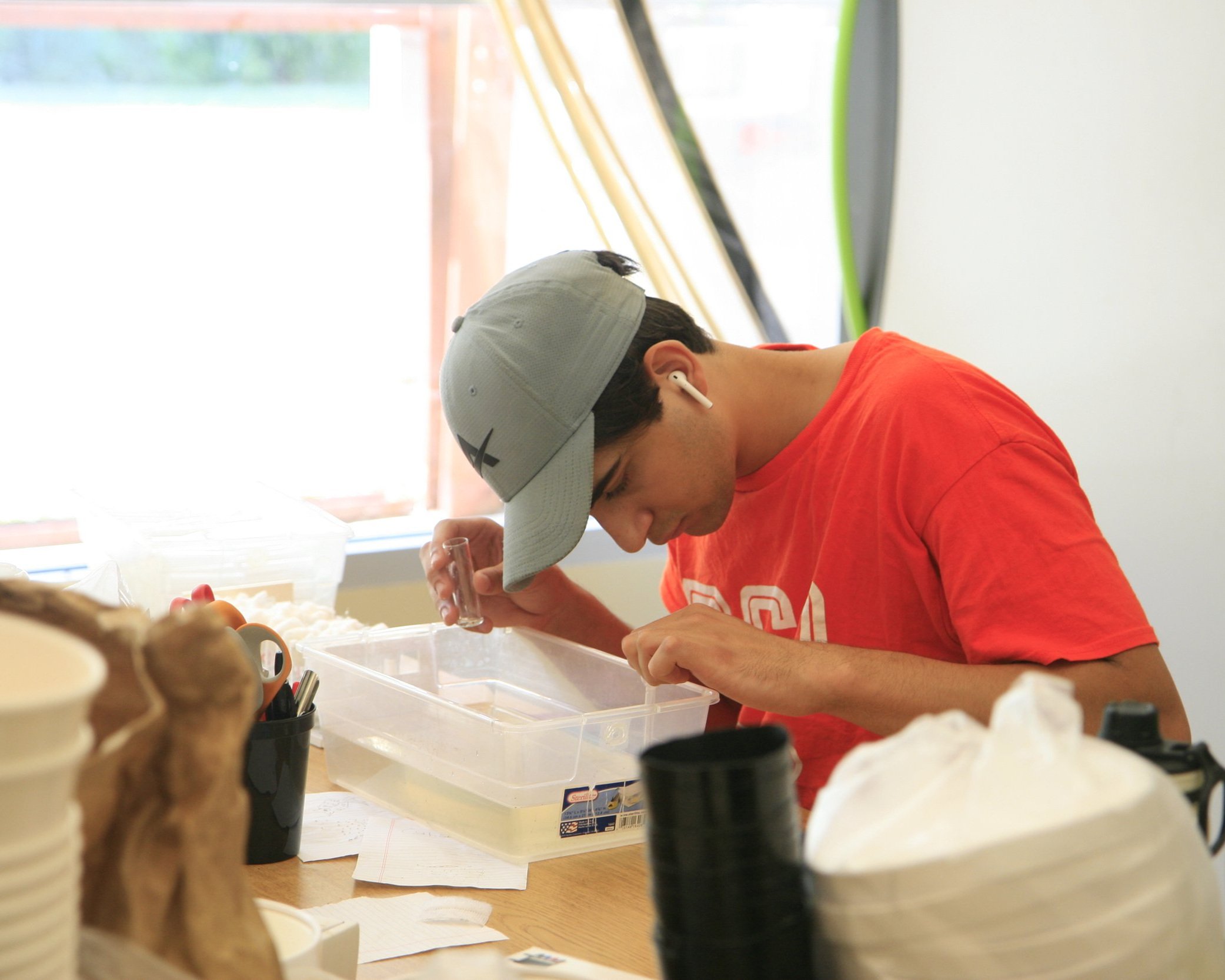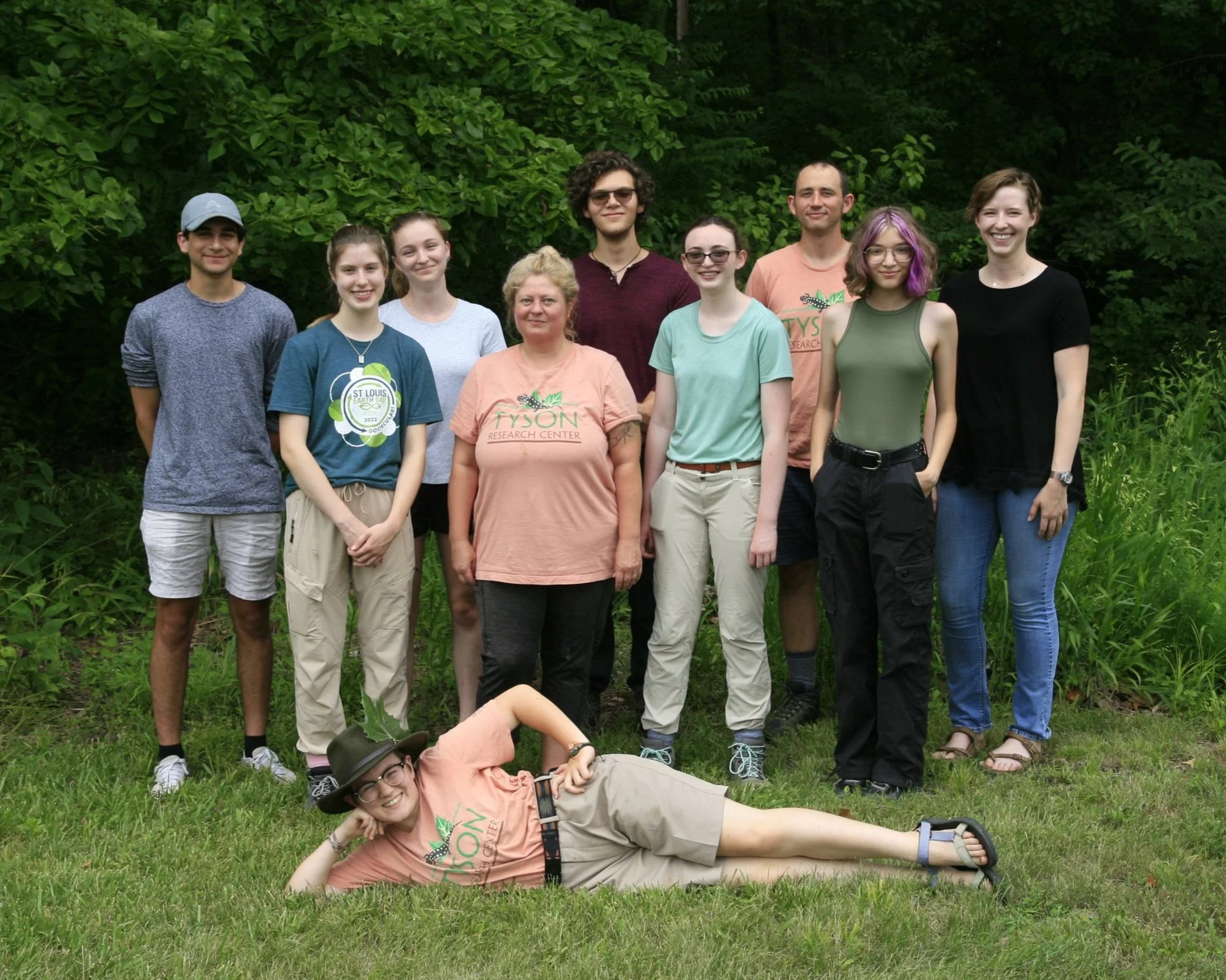Humans of Tyson 2023
Aiden Warner
he/him
Undergraduate Fellow
Mosquito Team
How did you end up on the Mosquito Team at Tyson?
I'm thinking of doing something in the microbio or computational bio realm, but I haven't declared anything yet. When I first came to WashU, I thought I would do environmental bio, and when I applied to Tyson, I think that was also in my mind. But then I started thinking more about biology and microbiology. One of the reasons I chose the Mosquito Team was its connection with viruses and pathogens.
“I felt more reaffirmed in what I want to do.”
I really liked the visiting professor last Friday from the medical school. He’s collecting ticks and determining what viruses they might be carrying to predict possible outbreaks. I really like the Visiting Professional Happy Hour because then you get a better understanding of what you want to do. I felt more reaffirmed in what I want to do.
But I also just like being outside and doing environmental work. My research hasn't required going into [the field at] Tyson much, but two of my fellow undergrads, Emma and Kathleen, have been. I've been in the field with them a bit, and it's fun to be in the woods. For Emma’s project we mostly just walk around and look for mosquitoes in tree holes, walking and talking… I take any opportunity I can get.
Can you tell me about your independent project?
Albopictus, or tiger mosquitoes, are very invasive and dominate the urban landscape here. In order to withstand winters and colder temperatures, the species has the ability to lay eggs in diapause that are heartier, have more fat, and have more nutrients compared to normal eggs. [Diapause is a period of suspended development.] However, Katie and Kim have found in prior years that mosquito diapause eggs are being laid as late as late August and early September, when it's still 85 degrees out in St. Louis, which is kind of odd. So I'm basically seeing how well these diapause eggs survive in warmer conditions, not just colder conditions. I'm also counting to see if mosquitoes are laying fewer eggs when in diapause as compared to non-diapause eggs. This would make sense, as it takes more effort and nutrients for the female mosquito to lay eggs in diapause as compared to normal.



